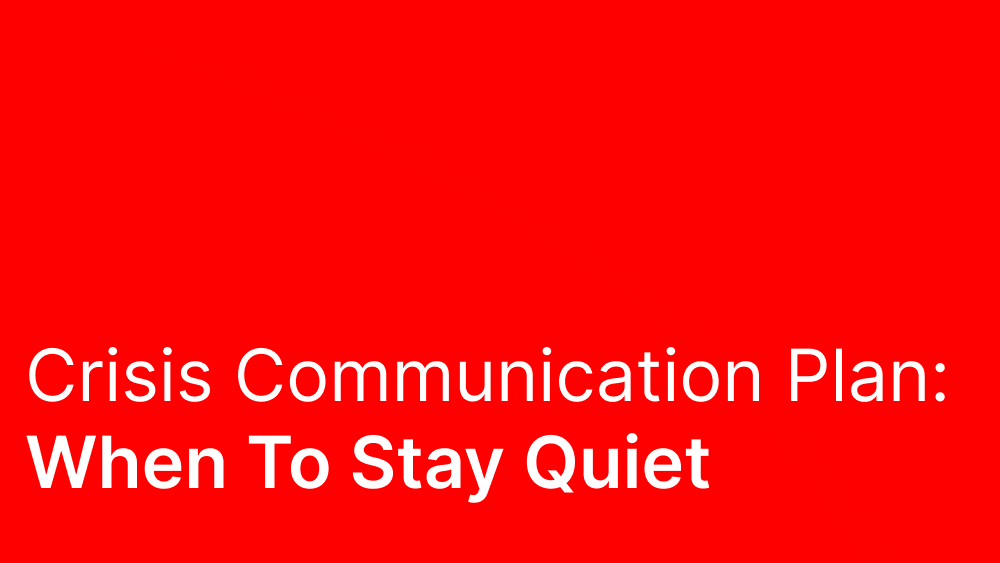If you look up the rules of crisis management you will overwhelmingly find that that most important rule is to communicate: ‘What happened, why it happened, why it won’t happen again.’
The very important nuance here is:
What if you don’t know what happened and why it happened? What do you do then?
Many organisations, especially those with vibrant, engaged, consumer brands, are committed to open and continuing communication, it is at the very core of what they do. They are constantly tweeting, updating Instagram, Facebook etc.
A crisis hits.
Definition: a crisis is only a crisis when the media get hold of it, up until that point it is an issue to be managed.
The organisation wants to communicate, they feel under tremendous pressure to communicate, every fibre in their being is telling them that they must communicate.
But, until they know the answer to the three questions — what happened, why it happened, and what will they do to make sure it never happens again — they need to give themselves time to gather information, to find the answers to the three questions.
Every minute they stay quiet is another minute where they can find out the answers to the critical questions, and the less reputational damage they will potentially suffer.
It is not a perfect solution — as there is an element of reputational damage which may come from delayed communication — but in the end this is about balance and the total loss of reputation to be weighed up at the end of the crisis.
By trying to communicate when they don’t have the answers to the critical questions the organisation is simply adding more fuel to the fire, and risks appearing incompetent, disorganised, out of control.


